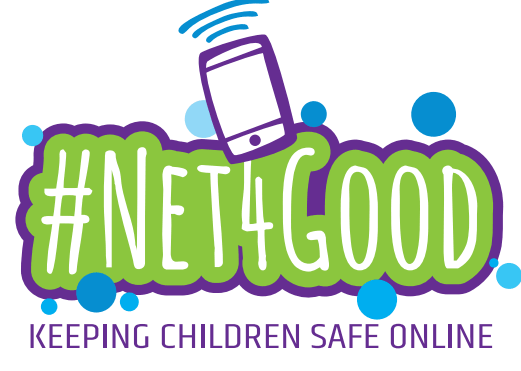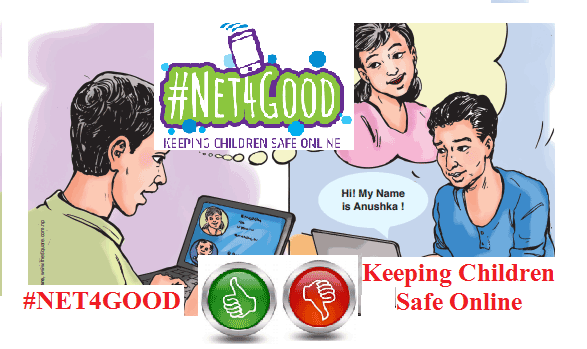The online world presents many opportunities. From learning new things to meeting new people and going places you normally wouldn’t have access to, the internet opens up a world of possibilities. At the same time, left unguided, or uninformed, you face many risks in the cyber world– risks for abuse, exploitation and violence. A friend you meet online might not really be who he or she claims to be. Personal information or photos shared online with few selected friends might be leaked or even altered and available for the entire world.
Navigating the Internet safely requires understanding the impact of your online activity, being careful of what you share and also supporting one another. #Net4Good is an initiative to make you and your parents aware about the opportunities and risks the world of Internet encompasses. At the same time, it increases awareness about the available resources to help you make informed choices while surfing the Internet in a safe manner.

DO Things:
1. Remember that what you post or upload in the Internet is permanent, widespread and nearly impossible to delete forever.
2. Regularly check privacy settings on your social media and chat room accounts to control who can chat with you or share your pictures and other personal information.
3. Update computers and mobile phones regularly with anti-virus software. #NETforgood
4. Be careful about job or other offers that you receive online. Did you apply for a job or do you have reasons to receive those offers? If you did not, this could be a scam and you need to be very careful. Do some research about the offer or the sender that has made the offer.
5. Speak to your parents, guardians or teachers if you are experiencing online abuse. Report to the Police if possible. It is not your fault and there is nothing to feel ashamed about it.
6. Avoid potentially harmful situations like meeting someone you ‘met’ online alone and in a desolate place and without telling a trusted adult.
7. Support one another by sharing information on how to be safe online, and speaking out against online violence.
DONOT
1. Do not share your photos and personal information like phone number, school or home address in online platforms or to people you don’t know or someone whom you have met online
2. Do not look at websites or materials available online that are disturbing or you are not comfortable with. These images, videos and texts can have long-term negative impact on you.
3. Do not visit forums and chat rooms for adults as information and conversation shared in these platforms might not be appropriate for children. If someone says or writes something which makes you feel uncomfortable or worried, say “No” and leave the chat room.
4. Do not believe all the information available in internet. Check and verify the information with adults that you trust.
5. Do not share passwords for laptop, email, social media accounts and mobile phones to anyone
6. Do not feel pressured to accept friend requests from strangers. Making new friends is great but before you accept a friend request you should check their profile. Do you have friends in common? Are you from the same town? Check your privacy settings so that this person does not see any information that you don’t want them to see. Remember that sometimes people pretend to be someone they are not and it’s hard to know if they are telling the truth about who they are online. 7. Do not keep your fears to yourself. If you are worried about your safety or something that has happened to you online, urgently speak to an adult you trust. #NET4Good


